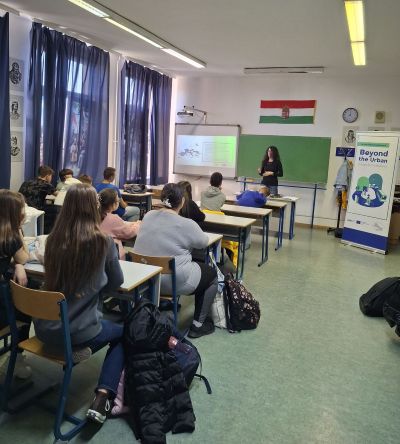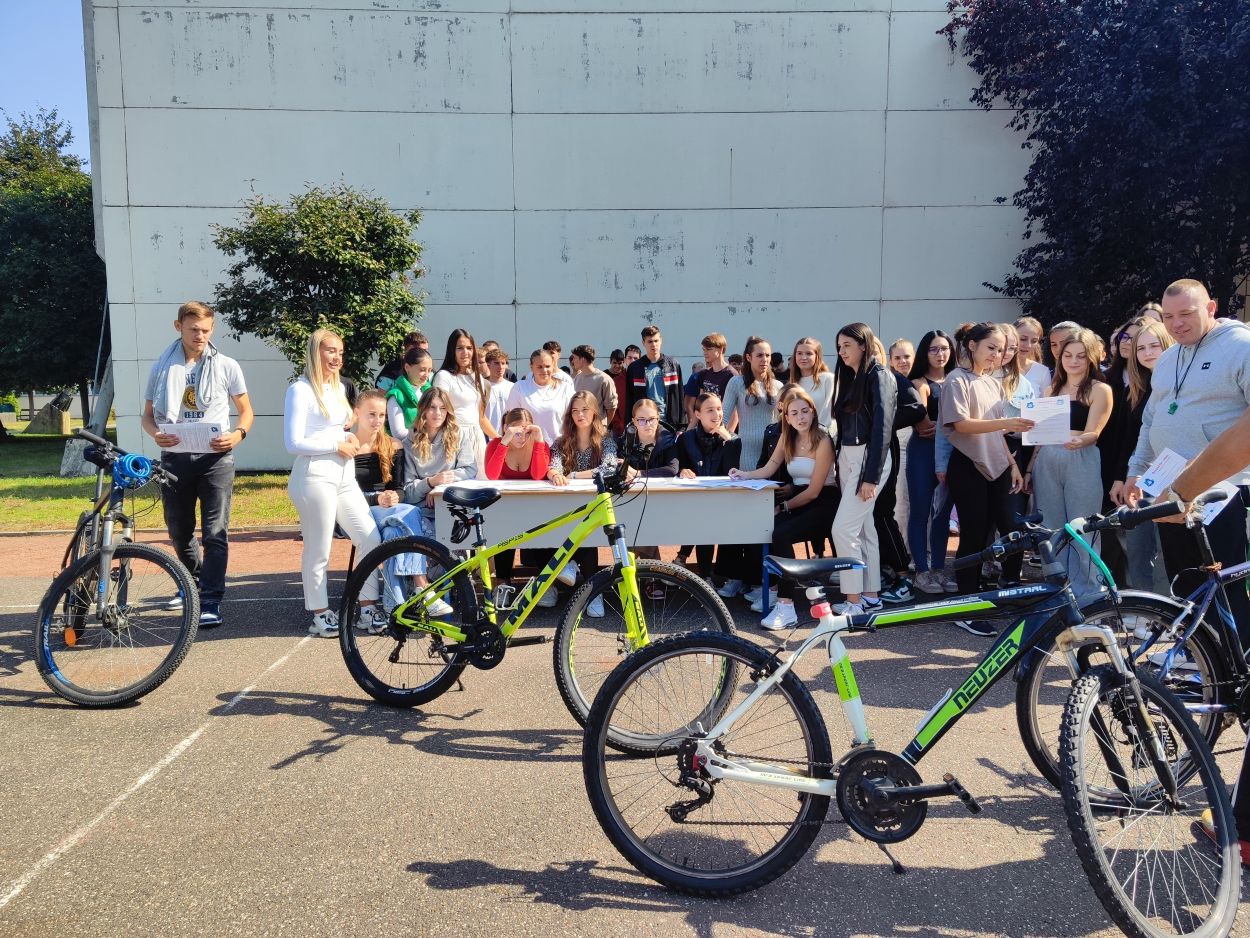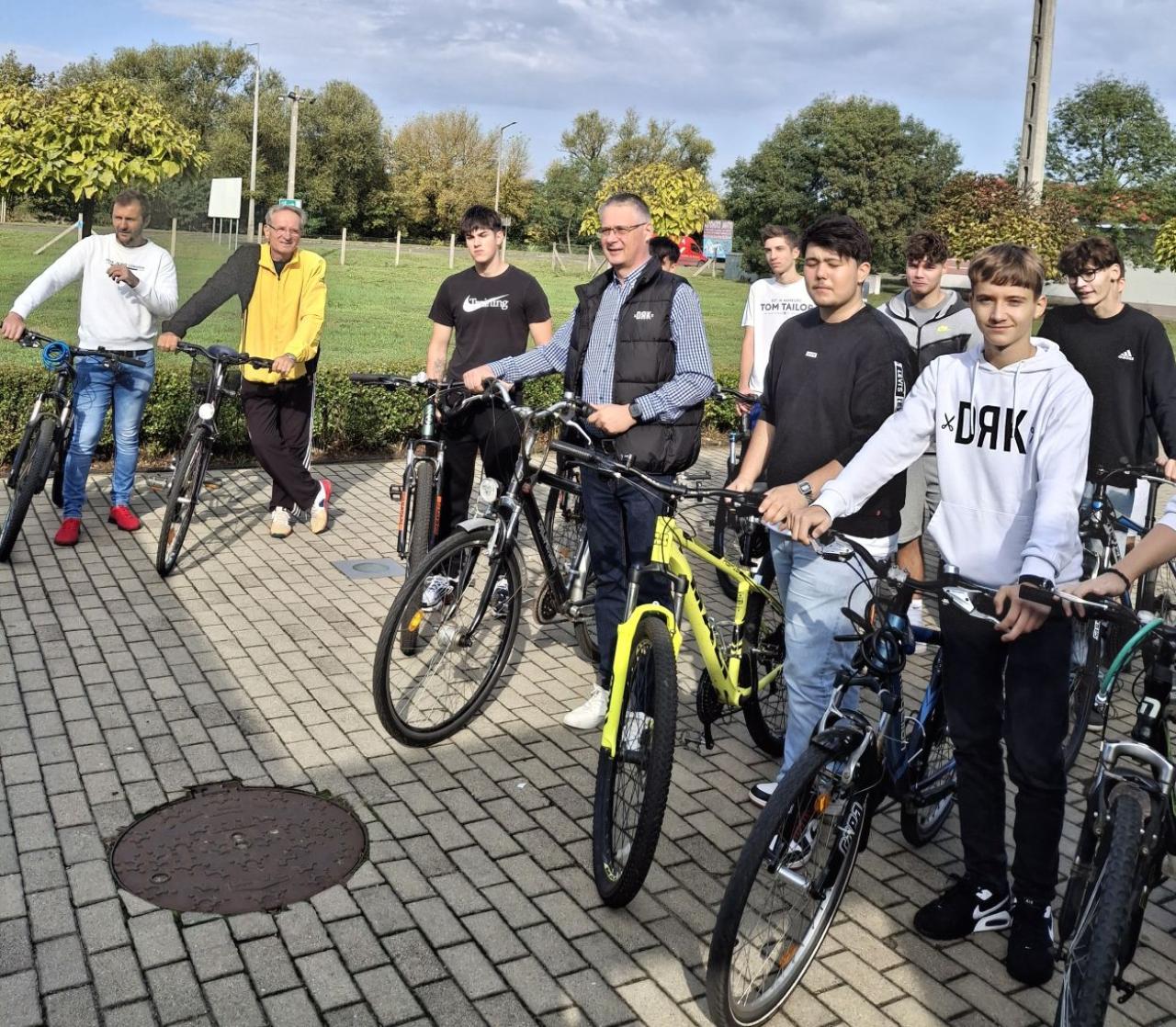Addressing the mobility challenges in Szabolcs 05
Szabolcs 05, situated in northeastern Hungary, encompasses six towns and 38 villages, with Mátészalka serving as the region’s central hub. The region faces several mobility challenges, including heavy car dependency, increasing transit traffic, and limited accessibility for non-motorized transport modes. The Beyond the Urban project provides Szabolcs 05 an opportunity to integrate best practices from other European regions and implement locally tailored solutions to improve mobility within the urban-rural landscape.
 The “Sustainable mobility FOR the children and WITH the children” initiative
The “Sustainable mobility FOR the children and WITH the children” initiative
As part of the small-scale actions, Szabolcs 05 implemented a multi-component initiative aimed at fostering sustainable transport habits among school-aged children. Recognizing that long-term behavioural change starts with young generations, this initiative focused on awareness-raising activities, educational programs, and interactive events.
The initiative had two main components:
Awareness-raising event during the European Mobility Week: On September 18, 2024, Szabolcs 05 organized an awareness-raising event at the recreational space of Gólyakerti Lake in Mátészalka as part of the European Mobility Week. The event featured a presentation by Mátészalka’s Mayor, Dr. Péter Hanusi, highlighting the city’s sustainable transport developments.
Additionally, the "Bike&Breakfast" movement was introduced in collaboration with local businesses, encouraging children to cycle to school by offering incentives. To further engage students in a fun and educational way, a playful quiz on sustainable transport was also conducted, promoting awareness and active participation in environmentally friendly mobility solutions.
Development of educational training material: A user-friendly training module on sustainable mobility was developed and distributed to educational institutions. The material was piloted in two classes at Esze Tamás High School in Mátészalka on 21 October 2024, where students participated in activities and quizzes to deepen their understanding of eco-friendly transportation options. The feedback from students and teachers highlighted the need for differentiated learning approaches based on age groups and reinforced the importance of hands-on activities in sustainability education.
Key takeaways and lessons learned
The small-scale actions provided valuable insights into fostering sustainable mobility in both urban and rural contexts.
Engaging young generations proved to be highly effective, as school programs helped instill sustainability values at an early stage, promoting long-term behavioral change. Tailoring educational materials to different age groups and incorporating interactive learning tools further increased students' interest and participation, consolidating these changes over time.
Additionally, organizing events as part of larger initiatives, such as European Mobility Week, significantly enhanced community participation by maximizing outreach and public engagement. However, to sustain behavioral change, awareness must be reinforced regularly through continuous engagement in recurring programs and events.
Equally important to promoting behavioral change, infrastructure improvements should reinforce and complement awareness efforts for sustainable effectiveness. Soft measures, such as training and events, should be complemented by infrastructure enhancements, such as expanded bicycle lanes and safer pedestrian pathways, to ensure lasting change.
Integrating small-scale actions into the Integrated Action Plan
The experiences from these small-scale actions have been channelled into Szabolcs 05’s Integrated Action Plan (IAP), which aligns with the Sustainable Urban Mobility Plan (SUMP) of Mátészalka. The IAP sets forth a strategic framework to enhance sustainable transport infrastructure, promote intermodality, and encourage behavioural change among residents. The outcomes of the small-scale action initiatives will also inform the ongoing revision of the SUMP, ensuring that future mobility plans incorporate evidence-based and community-driven solutions.
Looking ahead: Scaling up sustainable mobility efforts
Szabolcs 05’s participation in the Beyond the Urban URBACT project marks a crucial step toward fostering sustainable mobility solutions in rural and peri-urban areas. The successful implementation of the small-scale actions demonstrates the potential for scalable, community-driven initiatives that can be expanded across the region. By continuing to engage stakeholders, leverage European best practices, and integrate innovative solutions, Szabolcs 05 is poised to become a model for sustainable urban-rural mobility in Hungary and beyond. With the insights gained from this initiative, Szabolcs 05 remains committed to building a future where sustainable transport is not only a policy objective but a reality embraced by the entire community.

Events involving young people. Source: The Szabolcs 05 Regional Development Association of Municipalities

